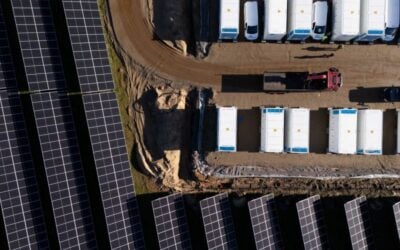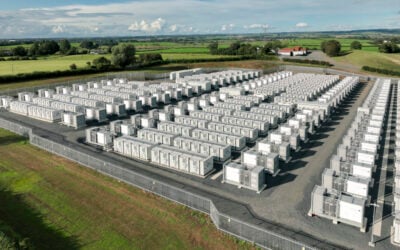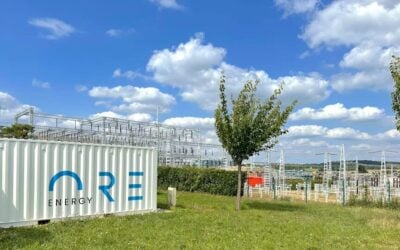
Ørsted, formerly DONG Energy, has confirmed its entry into the UK battery storage market with a new 20MW project near Liverpool.
The 20MW Carnegie Road battery will be developed by Ørsted as its first venture into large-scale storage and is expected to be operational by the end of 2018.
Grid connections and planning permits are already in place and Ørsted expects to start construction in May. NEC Energy Solutions (NEC ES) has been selected as the supplier of the battery energy storage system. Shaw Energi, the firm originally intending to develop the project, will continue to be support its execution.
Details on the business model behind the battery’s operation are scant, however the company has said it will be used to provide services to National Grid “to help manage stability during changes between peak and low power demand”.
Try Premium for just $1
- Full premium access for the first month at only $1
- Converts to an annual rate after 30 days unless cancelled
- Cancel anytime during the trial period
Premium Benefits
- Expert industry analysis and interviews
- Digital access to PV Tech Power journal
- Exclusive event discounts
Or get the full Premium subscription right away
Or continue reading this article for free
This could indicate the company’s intention to enter the completed project in any of National Grid’s service procurement tenders, typically forthcoming Capacity Markets or the frequency response tenders it is currently in the process of redesigning.
The firm’s head of energy storage and solar Ryan O’Keefe also alluded to the project bidding into those markets.
“We’re excited to develop this project. As batteries have a very high frequency response capability we believe they’ll play an important role in providing services for the support of the stability of the power grid.
“The demand for these services is likely to grow in the UK as the country is expected to decommission large parts of its carbon-based generation fleet and introduce more renewables generation,” he said.
The announcement comes after Ørsted last year said it had cast an eye over the nascent energy storage market and would be testing the technology in connection with the Burbo Bank wind farm it owns off the North West coast. At the time CEO Henrik Poulsen stated Ørsted’s commitment to a transition to a low carbon, green and sustainable energy system repeatedly.
Matthew Wright, managing director of Ørsted UK, said that the project was part of the company’s plans to be at the forefront of the “exciting shift towards a decarbonised energy system”.
“Acquiring the Carnegie Road plant is an important step forward as it’s our first commercial-scale battery storage project. We’re investing billions of pounds in the UK’s energy infrastructure and this is another significant investment that puts the UK at the heart of the global energy transition,” he said.





